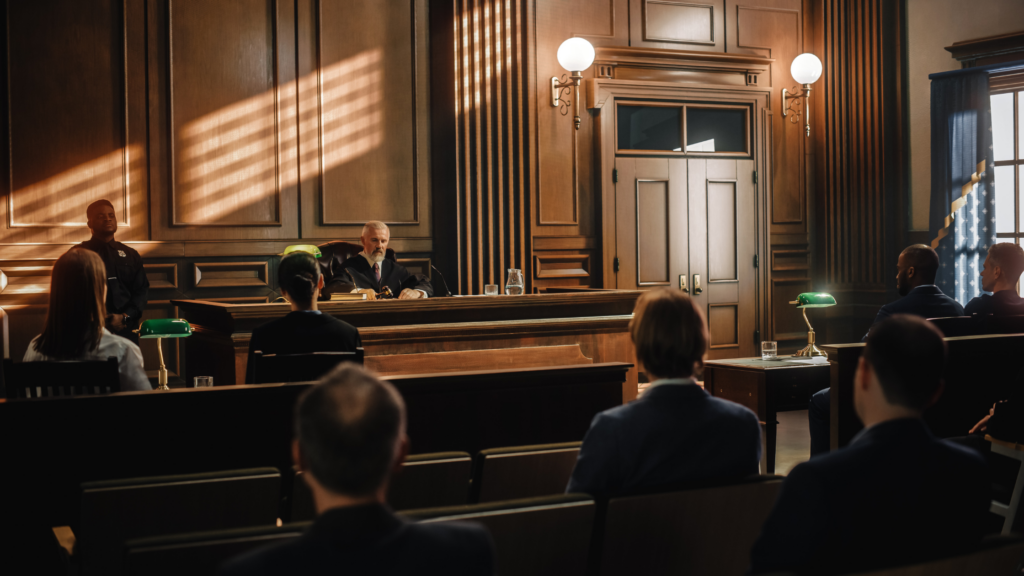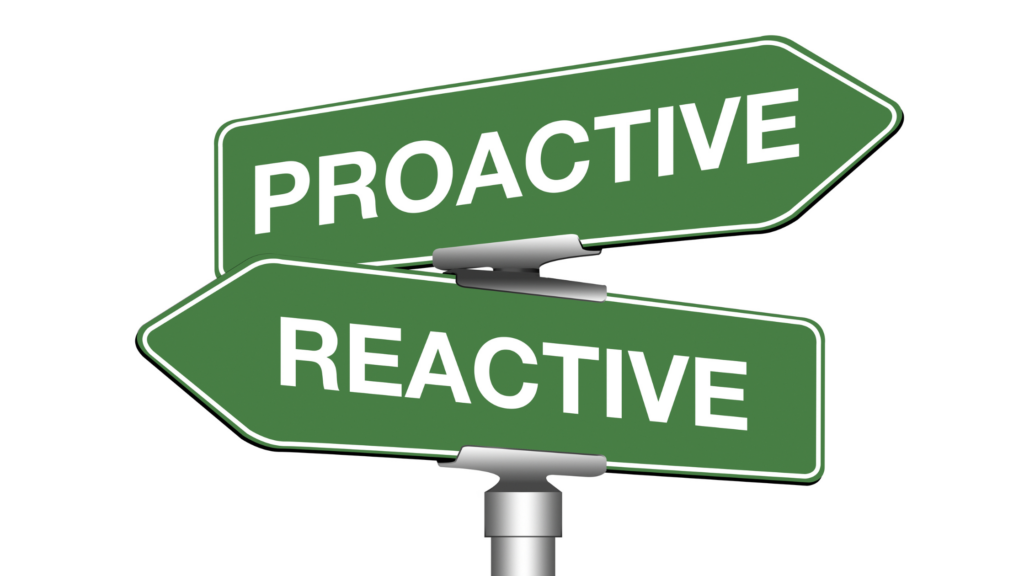When preparing for any trial, there can be a long list of to-dos, but do you know what is most important?
In this article, I’m diving into the most important thing to keep in mind when supporting your attorney before and during the trial and how you can not only be proactive but indispensable to your team.
Your Most Important Role as a Trial Paralegal
The biggest lesson I learned that I want you to hear about and hopefully prevent you from making the same mistake – is that you are the manager of the evidence. That is your role when you’re a litigation paralegal going to trial. As the manager of evidence, that doesn’t mean that you have to memorize what every exhibit says. I want you to think bigger picture here.
As the manager of evidence your job starts the minute you get the notice of trial – or in some cases that’s the minute the attorney knocks on your door and says “hey, can you help out on a trial next week?” Okay, maybe that’s something for later.
Why doesn’t it start at the beginning of the case when all this stuff is coming in through discovery? Well technically it does. It’s what I teach in the Litigation Boot Camp. The reason why I’m not starting at the beginning of the case is because, as most trial paralegals will tell you, sometimes you don’t get the luxury of having worked on the case from the beginning. Sometimes an attorney stops by your office and says “I need help getting ready for a trial that starts in 2 weeks.”
If that hasn’t happened to you yet, give it some time…it will! Maybe not as bad as that, but I’m warning you to be prepared for it.
And even though the trial might be in 2024, let’s say we’ve got a trial in a month or two. However long you have for this pretrial phase, whether it’s 2 weeks or 2 months – during this time your role as a trial paralegal is being the evidence manager. And when you get to the courtroom, you are expected to be on top of the evidence.
Let me explain.
Find out if it’s worth becoming a litigation paralegal.

An Important Lesson Learned
I’ll never forget my first trial. You won’t either. But here’s why I’ll never forget it even though it was 30 years ago. First, it was only about 4 months into my very first paralegal position. Second, I remember I took notes all throughout the trial. That’s what I saw the associate doing; that’s the advice the other paralegals who’d gone to trial told me to do: take good notes. So, I did. Unless of course, I was busy doing whatever the attorneys asked me to do, like:
- Go call tomorrow’s witnesses to remind them what time to be here
- Make two copies of this exhibit (side note – back then you had to bring rolls of quarters for stuff like that)
- And I’d be asked to do other things like find a particular exhibit, etc.
In between those things, I was taking good notes. It’s funny. I don’t remember what I was writing down on all of those yellow legal pads, but knowing what I know now, I’ll bet I’d have a good laugh at what a 20-something brand-new paralegal thought was important enough to write down.
Fast-forward, it’s the last day of trial and the judge is giving us a break before we start closing statements. The partner comes to me and says “Which exhibits on our exhibit list didn’t make it in as evidence? I want to be able to enter those into the record before closing statements.”
I must have looked at him like that meme of the cat with all its hair standing up and eyes bulging out, because he immediately said, “You haven’t been tracking which exhibits were admitted into evidence?”
There’s no way around this big blunder. I said no, I didn’t know I was supposed to be doing that. Yeah – big fat lesson learned on that one. As you can imagine, that never happened again.
I went on to have so many more trials in my career. With each one, I learned a lesson or two; then improved and incorporated those lessons into the next trial. That’s what I put in the Trial Prep Boot Camp – all the things I wish I’d known back when I was starting out.
There was at least one lesson learned in every trial, but my biggest lesson was in that first trial. And the one I want to pass along to all of the litigation paralegals reading this.
Here are 10 lessons learned in your first year as a litigation paralegal.
Trial Prep Boot Camp
Getting ready for trial is stressful and rewarding at the same time.
What if your next trial didn’t involve 14-hour work days?
We’ll show you to be so prepared for your next trial that you will actually enjoy going to trial…even if you work for the Master of Procrastination!

Being the Evidence Manager
As the trial paralegal, your most important role is to be the evidence manager.
Let’s unpack that and see what it means at the different phases.
I want to start with the end, because that’s really the most important phase when you’re in the courtroom and you’re the evidence manager.
First, keep in mind that evidence is not just the trial exhibits. Witness testimony is evidence. Testimony that comes in at trial through deposition transcripts is evidence. Demonstratives are evidence because they’re a summary of what’s in the actual exhibits.
As the evidence manager in the courtroom, it’s your job to find the evidence the attorney needs at any given moment, whether that’s a witness that is needed on the stand to testify, or you are reading a deposition transcript into the record, or you’re pulling up a demonstrative on the big screen. All of that, plus finding the trial exhibit that the attorney needs.
That means you need a system in place to be able to find all of that evidence on a moment’s notice. There are lots of ways to do that either with technology or manually. Every trial paralegal has their own preference and knows what works best for them and the attorney they’re at trial with.
Learn about the difference between a legal assistant and a paralegal.

Keeping Track of the Evidence
It’s not just finding the evidence that’s needed though. It’s also tracking it during the trial to know what got admitted as evidence and what didn’t. This is because the jury (and the judge) can only make a decision based on evidence that was admitted.
Let’s say you’ve got 100 exhibits on your trial exhibit list. Many of them are on there out of an abundance of caution because if they’re not on the trial exhibit list, they generally can’t be used.
So let’s say 10 of those 100 are never introduced as exhibits. Those are easy. But you could have another 10 that the attorney introduced as an exhibit while a witness was on the stand, the other side objected to it, and the judge sustained their objection. So those 10 were introduced but not admitted. The jury can’t use them to decide the case.
You could have another 10 exhibits that the attorney introduces as an exhibit, but for whatever reason, the attorney never goes through the rest of the formal process of asking the court to admit the exhibit as evidence. The jury can’t use them to decide the case either.
So now you’re down to 80 exhibits. You, as the evidence manager, needs to know at all times what the status is at any given time.
Get valuable organization tips for new paralegals.

The PreTrial Phase
Alright, now let’s talk about being the evidence manager during the pretrial phase.
First, let me define the pretrial phase. This isn’t when you’re in the middle of discovery and depositions. The pretrial phase is when you’ve received the notice of trial and you’re doing things like drafting the exhibit list and deciding which witnesses will be needed at trial. This pretrial phase, when you’re getting ready for trial, could be anywhere from 4 weeks to 4 months.
As the evidence manager, during this phase you’re going to be identifying and organizing those trial exhibits, drafting the witness list, maybe working with an outside vendor to prepare the demonstratives. And during that time, the attorney is going to be preparing witnesses for their appearance and doing all kinds of other activities to get ready for trial.
Do you know what that trial attorney is not doing? They’re not worrying about how to organize the exhibits or what the best way would be to put together the witness prep notebooks.
And this was another big lesson I learned going to trial…the attorneys are NOT thinking about how to organize things or how you should be doing things. They are spending their time trying to figure out what evidence they need to win the case. They are spending time strategizing and researching the law to make their arguments that can win the case.
The reason I tell you that is because, as the evidence manager, you shouldn’t ever wait for the attorney to tell you this is what you should be doing. They’re not thinking about what you should be doing. They’re thinking about how they can win the case.
Learn more about assisting with the pretrial conference.

Free Strategy Guidebook for
New Litigation Paralegals
Are you ready to fast-track your litigation paralegal career?!
Our free guidebook reveals three powerful strategies that will set you up for success in your journey. If you’re ready to seize this opportunity and thrive as a litigation paralegal, sign up below, and get started now!
Being Organized
The best thing you can do is to figure out a system for organizing that evidence so that you can easily get your hands on it when the attorney is prepping for trial and sends you a Slack message that they need XYZ.
I can’t tell you how to organize your evidence because it’s going to depend on many different factors, the biggest one being what the case is about.
Let me give you an example. If it’s a case like medical malpractice or a labor & employment dispute, then it makes sense that the evidence would be presented chronologically and therefore, the exhibits would probably be best organized chronologically. On the other hand, if it’s a contract dispute case, maybe it makes more sense to be organized around the issues or the clauses in the contract that are in dispute.
The thing that’s most important, regardless of how you organize things is how you are going to FIND the things you need.
In a big case with 3,000 exhibits from each side, you’re never going to memorize all of them. You have to know how to find them quickly.

How to Be Proactive
One last piece of advice I have for you as you’re getting ready for your first trial: there is no such thing as a paralegal who is too proactive.
I’ve never had an attorney complain to me that their paralegal was too proactive. This is especially true when you’re getting ready for trial.
Remember what I said about what the attorney is doing during the pretrial phase? They’re thinking of strategy and how to win the case. If you wait for them to come to tell you what to do, it’s going to be right before it’s needed. Don’t wait for them to assign tasks to you.
Instead, put together a trial prep checklist and go to them and say “this is what I’m going to be working on this week to stay on top of what we need for trial. Can we talk about it to make sure I’m on the right track?
As you gain more experience and get to know the attorney’s preferences, then telling them in advance won’t even be necessary. I think it’s a good idea to start out though.
More Paralegal Resources For You
Meet the Author

Ann Pearson is the Founder of the Paralegal Boot Camp, and host of the Paralegals on Fire! Podcast Show, and passionate about promoting the paralegal profession.
Ann spent 20 years working as a paralegal manager and a litigation paralegal before opening the Paralegal Boot Camp in 2010. Her training programs focus on adding immediate value to a paralegal’s career and bridging the gap between what a paralegal learns in school and what they actually do on the job.
When Ann is not working, you can usually find her somewhere near the ocean – either boating, scuba diving, or rescuing sea turtles.

























